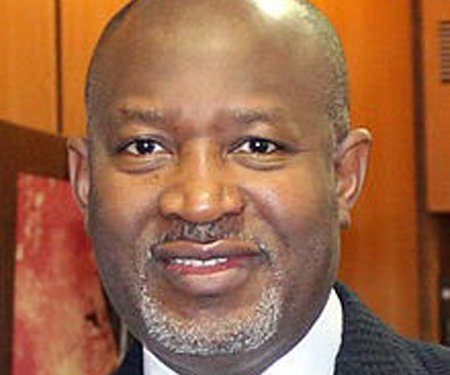ONLY 28 countries are ready to implement the Single African Air Transport Market (SAATM) aimed at strenghtening air liberalisation on the continent, Minister of State, Aviation, Hadi Sirika, has said.
Sirika, therefore, called on more African states to adopt the SAATM.
He said unless member states of the African Union (AU) agree to do so, they would have problems with intra-African air connectivity and other issues affecting air transport.
In an interview during the Second Ordinary Session of the AU Specialised Technical Committee on Transport, Transcontinental and Inter-regional Infrastructure, in Cairo, Egypt, he said SAATM is projected to stimulate intra-regional connectivity between the capital cities of Africa by creating a unified air transport market and act as an impetus to the continent’s economic integration and growth agenda.
Fifty-five nations make up the AU. Member states that have indicated interest in SAATM, Sirika said, include Benin, Burkina Faso, Botswana, Capo Verde, Central African Republic, Chad, Congo, Côte d’Ivoire, Egypt, and Ethiopia.
Others are Gabon, Gambia, Ghana, Guinea, Kenya, Liberia, Mali, Mozambique, Niger, Nigeria, Rwanda, Sierra Leone, South Africa, Swaziland, Togo, and Zimbabwe.
Sirika said African transport ministers agreed to strategies that would boost infrastructure.
He said they also called on the African Development Bank (AfDB) to continue to mobilise more financial resources for priority intercontinental transport programmes, such as SAATM and implementation of African Plan of Action for Road Safety.
According to Sirika, the ministers appealed to member states to hasten the signing and or ratification of pending legal instrument related to infrastructure, notably Maritime Charter, Yamoussoukro Declaration (YD) and SAATM.
He said Nigeria was set to review the subsisting Bilateral Air Services Agreements (BASAs) to be in consonance with the YD, which stands for air liberalisation. According to him, the process of domesticating the decision has reached an advanced stage.
According to him, the future presented both challenges and potential as a continent striving to reposition itself by leveraging the immense potentials that the full implementation of the YD, SAATM offers.
Sirika said: “We must all, therefore, strive to commit to the full implementation and operationalisation of SAATM. We need to leap forward to become an effective global competitor in aviation.
“In this regard, Nigeria being one of the pioneer member-states signatory to YD, and one of the 23 states that have so far made solemn commitment to the implementation of SAATM by 2018, has constituted a National Implementation Committee to review all the subsisting BASAs to be in consonance with the YD.
“The process of domesticating the decision is at an advanced stage. Nigeria recognised the need to provide for enhanced traffic growth that will be an offshoot of the full operationalisation of SAATM.
“Currently, some of the international airports are being expanded with the addition of new terminals, the government has also approved the concession of the major international airports in its efforts to reposition them for better service delivery.”
He urged the remaining member- states to join the SAATM, ratify the African Road Safety Charter, the Revised Maritime Transport Charter and the Africa Civil Aviation Commission (AFCAC) Constitution.
In a related development , 16 African states have signed a memorandum of implementation (MoI) which will open their markets .
The African Civil Aviation Commission ( AFCAC), which made this known, said once a state signs the MoI, it is uploaded to the body’s website notifying other states that their market is now open for the removal of all restrictive provisions from bilateral agreements.
The Dakar-based AFCAC is the body responsible for implementing intra-African open skies.
Its Secretary-General, Tefera Mekonnen, said the MoI will make it easier for states to come on board.
He said: ”Previously, states have had to go through the so-called “seven concrete steps” to implement liberalisation. For us, it is not relevant for them to complete everyone.
Mekonnen said the seven steps—which were developed during the launch phase—have become cumbersome and needed refining.
He said: ”The MoI has become the eighth step, effectively replacing the previous seven. I am not interested in numbers. I am interested in implementation
“Currently, 28 countries have signed up to SAATM and 16 of these have signed the MoI, committing to unconditional and immediate implementation of all the provisions of the YD.
“Most of the legal framework for SAATM is now in place, including rules for consumer protection and fair competition. The AU and AFCAC are looking at using the dispute-settlement mechanisms, which were adopted for the Common Africa Free Trade Area, for SAATM.
“In the meantime, airlines can use the dispute-settlement provisions of YD, or rules within bilateral air-service agreements.”
“AFCAC will finalise its action plan, releasing a quarterly progress update. This strategy includes synchronising AFCAC’s work with other stakeholders, such as IATA, ahead of a push for greater awareness and implementation from the second quarter of 2019.










